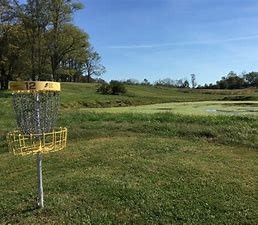Commercial real estate attorneys often are asked about ways to help them, as landowners, to be pro-active in limiting their liability from unfortunate occurrences on their property that result in injuries to their guests. For owners of real estate other than agricultural land, a written waiver could be helpful. For agricultural landowners (and tenants of agricultural land), the Texas Civil Practice & Remedies Code (TCPRC) provides a layer of protection (See Sec. 75.002 et seq.)
A written waiver agreement is an agreement by a guest that documents a promise that the guest will not sue the landowner if the guest is injured on the property. In general, a written waiver agreement will be enforceable in Texas courts if it has these elements: (i) the waiver language is clear – use simple, non-technical language to unambiguously describe that the guest is releasing the landowner from any and all liability due to injuries the guest may sustain on the property; (ii) the waiver language is conspicuous – use large print that stands out from the page, don’t use small print or try to hide the waiver language among other subjects, especially if a waiver agreement also waives the landowner’s own negligence; (iii) the waiver language should have stated consideration to support it – state that in exchange for the guest signing the waiver, they get to enter the property; and (iv) the waiver agreement is between two parties with equal bargaining power, which loosely means that both have somewhat similar capacity to negotiate over the agreement.
The effect of the section of the TCPRC first referenced above with respect to invited guests on agricultural land for recreational purposes is that an invitation to a guest to enter upon land does not mean that: (i) the land is safe for that purpose; (ii) that the guest can expect any greater degree of care than that owed to a trespasser; or (iii) the landowner is assuming responsibility for any injury to any individual or property caused by any act of the invited guest. Recreation is defined as activities such as hunting, fishing, swimming, boating, camping, picnicking, hiking, pleasure driving, nature study, cave exploration, water sports, nature enjoying activities, bicycling, disc golf, walking of dogs, radio control flying and rock climbing. And with respect to a trespasser, the TCPR states that an owner, lessee, or occupant of agricultural land does not owe a duty of care to a trespasser and is not liable for any injury to the trespasser. Nevertheless, if the landowner or lessee has been grossly negligent or has acted with malicious intent or bad faith, the TCPRC does not limit that liability and it does not matter if the status of the person is a guest or a trespasser.
Lastly, a somewhat recent addition to the TCPRC now addresses how agricultural landowners can obtain waivers to further limit liability, including from minors, with respect to participation in educational or recreational activities on the land (called “agritourism activities”) (See Sec. 75A, et seq. of the TCPRC). The signature of one parent on the waiver agreement on behalf of the minor appears to be sufficient to accomplish an enforceable waiver for the landowner, provided the other statutory requirements are met. Furthermore, these provisions include recommended wording to include in a waiver agreement for agritourism activities, and wording to display on a clearly visible sign on the property to notify of the limited liability of the landowner. As always, consult a knowledgeable attorney to help you take advantage of these liability limiting tools.



Leave a Comment